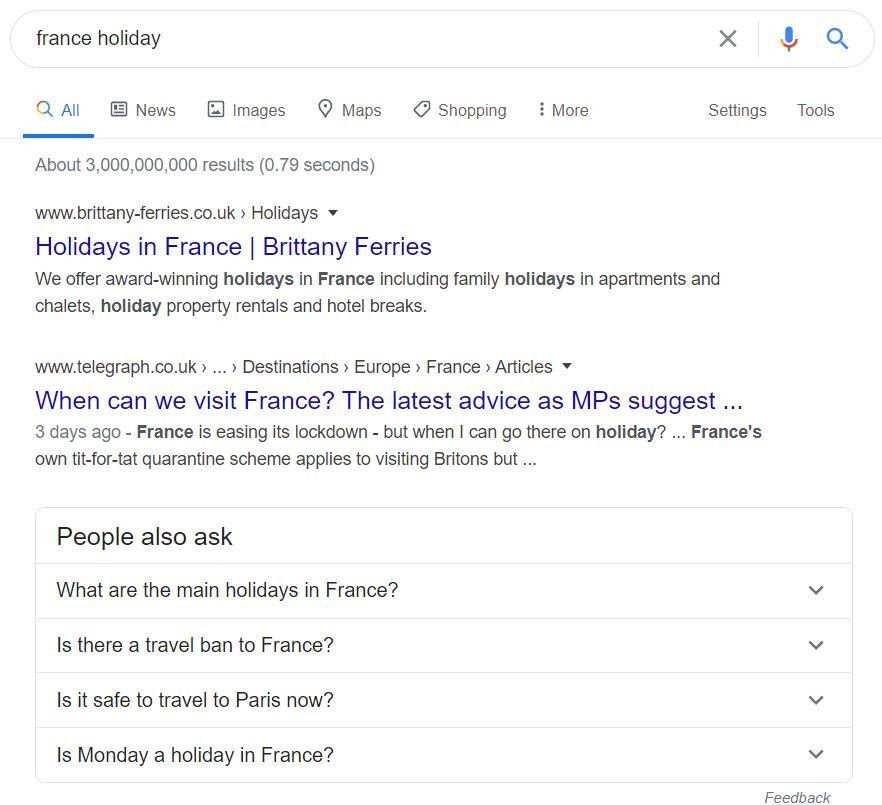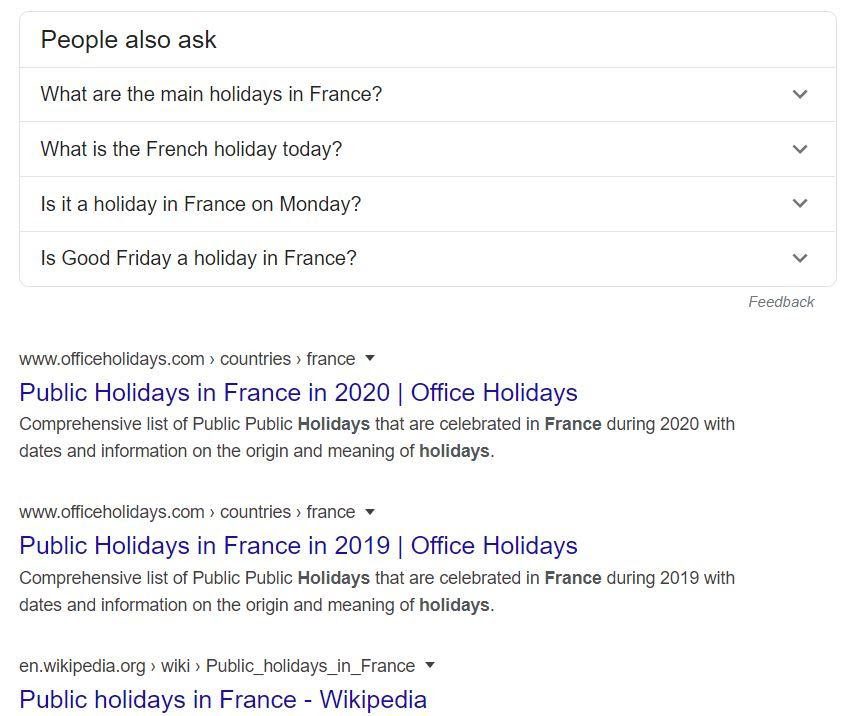Artificial intelligence is no longer just a sci-fi concept but is used by technology companies every single day. Google use it to help sort photos, translate websites, provide chat bots on healthcare websites and even to detect new planets. How they rank websites in their search results is also determined to an ever-increasing extent on the basis of their AI algorithm known as RankBrain.
This has changed the way that Search Engine Optimisation works over the years (and as an SEO consultant, in my mind, for the better). While keyword research and having a healthy keyword balance on different elements of your site is still important, spammy backlinks, keyword stuffing, spun articles and a whole bunch of black hat SEO techniques simply don’t work anymore.
So, how do you improve your SEO ranking?
The solution is to create a website that:
- Has a good user-experience (loads quickly, is mobile friendly, easy to navigate, and secure). See https://developers.google.com/search/docs/guides/page-experience for links to a range of tests Google provide for free that help you determine if your site meets these criteria. In 2021, Google will be releasing a new Google Page Experience Algorithm Update that will make these factors more important still.
- Has great content – studies show that blogs with more than 2,000 words get far more shares on social media than those with under 1,000 words, and the average web page on the first page of Google has around 2,000 words too. These words have to be well researched, lovingly crafted and written for the appropriate audience. Content that is structured into sub-headings and bullet points and has charts or images that illustrate the most important points are also most likely to rank higher with Google.
- Has high authority, relevant backlinks – the backlinks to your site are just as important as the content that is on it. Google’s AI looks for a natural backlink profile that includes engagement on social media, links from relevant articles on high traffic sites, and a wide variety of other links using a naturally diverse anchor text ratio. Don’t be tempted by any offers for hundreds of links and avoid making all your links contain keywords in the anchor text – that will only get you into trouble!
In short, Google AI is now sufficiently complex that you can almost pretend search engines weren’t driven by an algorithm. Ask yourself, if Google’s rankings were determined by millions of people sitting in their cubicles, manually going through the results on the web, all looking for the best web page for any particular query, what result would they choose?
Taking this approach will give you a better ranking with Google than just ignoring the human factor and focusing on the algorithms.
If you’re looking for a successful SEO company to help get you to the top with Google, then it’s well worth asking yourself if you like their writing style, if they will understand the local audience (or audiences if you have an international focus) and if their own site has an engaging blog on it. While technical SEO has its place, many CMS systems will take care of this for you to some extent. Remember that being able to write well is now an absolute essential for a successful SEO campaign.
How AI has changed keyword research

As web development trends change this has impacted how to use your keyword research.
The process itself is very similar to what it was a decade ago – use a keyword tool like SEMrush, Ahrefs, Soovle or Jaaxy to name a few. Find relevant keywords and choose one or two priority keywords that have a high monthly search volume per page. If you have a new website, for optimal SEO, focus on keywords that also don’t have too much organic competition. If you have an established website, you can go for some of those more competitive keywords with higher search volumes.
Having chosen your keywords, include it (with the correct spelling and grammar) in your page’s Meta Title, Meta Description, URL and h1 title once (maybe twice for the Meta Title and Meta Description if the keyword’s short) the simplest way of determining this is to enter the keyword in Google and use a similar format to the top competitors.
That’s where the similarity ends.
Google’s AI is now smart enough that it has a broader understanding of what a keyword means. Many searchers will speak a phrase, rather than typing it, meaning actual searches are longer and more varied. Google can also contextualise in much the same way as a human can. It will ignore typos or missing accents for foreign language searches and make an educated guess based on which search results have received the most clicks for a particular keyword previously, whether visitors are searching for a product, service, blog, or news item.
Before you write a page targeting any keyword, best SEO practice is to do a quick search in Google to see what pages rank top. If all the top 10 competing pages are blog pages, don’t try to rank a product page for that keyword, as it will be extraordinarily difficult, instead write a blog that includes links to your products.
Let’s look at another example, if you search for “France holiday”, then you get information on where to go on holiday in France, plus travel websites.

On the other hand, if you search for “French holiday”, you get information on public holidays in France.

This suggests that most people searching for “French holiday” clicked a result about public holidays and that if you have a holiday accommodation website, it would be pointless targeting this keyword with anything other than a page about public holidays! It also tells you the intent behind most people searching for this keyword is actually to find dates of public holidays, so if you want to target holiday-makers, you might be better choosing a different keyword altogether.
How to write content to boost your SEO ranking
The simplest strategy is once you’ve completed the keyword research and decided on the title and overall structure of a page, then write the rest of the article, product details, etc. completely ignoring SEO.

The reason I recommend this approach is that this allows you to focus 100% on writing meaningful, engaging content that presents information clearly. Afterwards, go through it and make sure that you use the most important keywords, or close variants of them occasionally throughout the content in a natural way. If you realise you’ve barely used them, add them a handful of times. If you realise that you’ve accidentally used them too often, and it might come across as keyword stuffing, then reword some sentences to use them less.
There are several useful SEO blogging tools that will help you to remove superfluous words from your writing, find keywords that your competitors’ use and design images for inclusion in your blog and it’s worth taking a look at these too.
Further improve your ranking with quality backlinks
Once you’ve created a website with a positive user-experience and written some great pieces of content to go on your site, it’s time to build some high-quality backlinks to it.
Google’s AI is looking for signs that other people are spontaneously linking to your site and indeed, the best solution is to write content that is truly of interest to a large number of potential readers and has the potential to go viral. However, to go viral, first someone needs to see it and share it, so at the very least you will need to build the first few links yourself.
You can do this by:
- Writing a few guest posts that are related to your product or service and contacting webmasters or journalists to ask if they will add them to their site. A few of these will get you a lot further up Google’s search results ladder than most other types of link.
- Sharing your blogs on social media – LinkedIn and Facebook both have groups where you can reach others interested in the same topic, and you could also find a sub-reddit with the same goal.
- Searching for target keywords and submitting to any directories that appear or asking webmasters to include your link as part of an existing article or page of resources.
SEO for Google AI
Did you know that Google AI is now so complex that the top experts in Google no longer understand how it works?
Therefore, no-one would expect you to. Instead trust that as time progresses it will get smarter and smarter and to improve your ranking, the best strategy is to:
- Create a fast, mobile-friendly, and user-friendly site.
- Write great content for the site (and keep expanding it!)
- Build relevant backlinks from high quality blogs and on social media.
Focusing your efforts on the above and keeping your potential customers and other website visitors in mind will give you the best results and help you to achieve your SEO goals.
This article was written by the team at Indigoextra Ltd, an international SEO company based in Europe who have helped 100’s of clients rank well with Google over the last 14 years. We hope you found it useful!



































